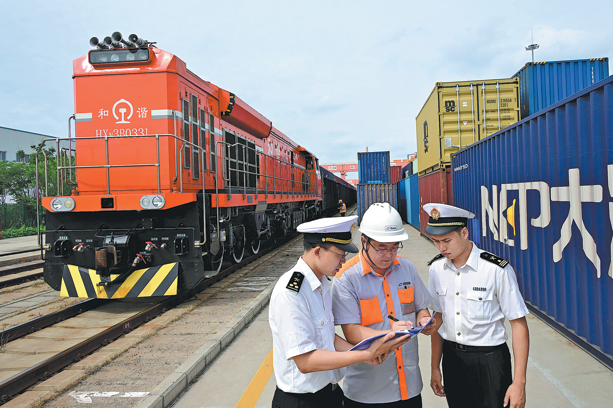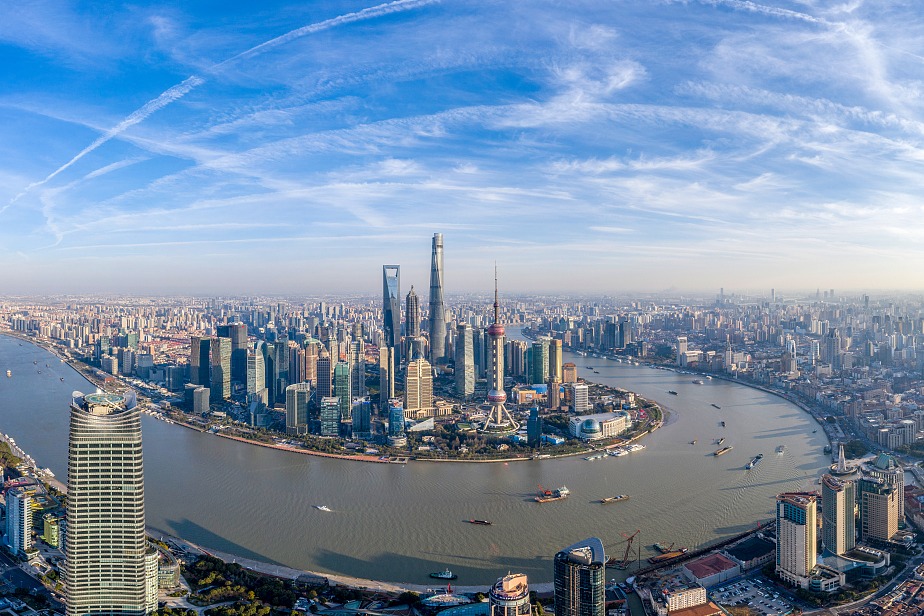Harvest success puts rice on table

Big investment changes the way mozambique cultivates its land
Though Mozambique has identified agriculture as one of its key growth areas, hunger and famine have prevented the southern African state from fully exploiting its agricultural resources.
With its abundant rivers, mild climate and fertile soil, one would have expected Mozambique to be brimming with agricultural activities. Instead, out of the 36 million hectares of land available for agriculture - an area larger than Belgium - only 10 percent is used for cultivation. Imports and foreign aid projects have been the mainstay for food supplies in the country.
However, one Chinese private company has managed to beat the odds and carve a niche for itself in the agriculture sector of Mozambique. Wanbao Grains and Oils, an agricultural product processing company based in Xiangyang, Hubei province, has till date invested more than $100 million in Gaza, 200 km north of Mozambique's capital, Maputo, to grow rice and corn.
Wanbao first came to the southern African country in 2011, when a China Development Bank official sent Chai Shungong, president of Wanbao, a text message, inviting him to "come to Mozambique for a look". That visit soon became an investment reality.
To Wanbao, Mozambique was a golden opportunity to circumvent the bottlenecks it is facing in China's agriculture sector. Explaining further, he says that as a grain processing company there never seemed to be enough grain in the Chinese market to keep the company running at full potential.
The company had to import 70 percent of the soybeans needed to process into oil, while most of its other processing lines remained idle for most of the year.
Han Chuanqi, vice-president of Wanbao Mozambique, says smaller companies cannot compete with the giant state-owned companies in procuring enough raw materials as grains are considered important national strategic reserves in China. "Faced with such a situation, we decided to tap the African markets so we could grow our own raw materials," he says.
Han says that while this sounded easy on paper, it was more difficult to replicate on the ground. "African people are more used to cassava and corn cultivation. Only in some regions is rice cultivated as a staple, and the farmers have very little experience when it comes to modern cultivation and transplantation techniques. Every year Mozambique needs to import 450,000 tons of rice for domestic needs."
Peng Dajun, the Chinese adviser in the Ministry of Agriculture, Ethiopia, says that though many African countries have good climate, plenty of water resources and rich soil, primitive farming techniques have hampered further progress in agriculture.
Peng, who has stayed in Africa for more than 10 years, says: "Every year, before the rainy season, the African farmers burn their crops to ashes and use them as fertilizer. Fresh sowing follows and this is followed by a long wait for the crops to be harvested. In most of these cases, the farmer's future is left to fate."
"There is nothing wrong with using the primitive way of farming, but the problem is that such methods do not produce enough food to feed the people," Peng says. "China used to face the same problem, but solved it by introducing modern technology."
Wanbao's early trials in Mozambique were encouraging, and its average yield per hectare in demonstration fields reached 8 tons, four to five times the yield of local farmers on similar plots.
Buoyed by the success, the Mozambique government agreed to lease 20,000 hectares of land to Wanbao to build a mega-scale farm in 2012.
Government officials maintain that the tie-up with the Chinese company has helped Mozambique introduce modern farming technologies and expertise to the country.
Under the terms of the contract, Wanbao needs to "train the local farmers extensively on rice and corn growing techniques". Wanbao has reserved 10 percent of the area under its cultivation in Mozambique for training local farmers. More than 1,500 villagers now work in the farm, either as farmers to transplant rice seedlings, or as students to gain first-hand knowledge in rice cultivating.
For the time being, the company is still in the red as the wage bill for Chinese and local workers totals more than $1 million a month. Han expects the company to break even in one or two years when an irrigation system and a small dam are finished.
Chai, the president of Wanbao, expresses confidence that the company will be able to process 1,000 tons of rice, 100 tons of corn and 100 tons of flour power every day. Also on the cards are plans to build barns that can hold 300,000 tons of grains.
"We are confident that Mozambique will be able to overcome its food problems in the long run," Chai says.
"Growing rice and corn is not the company's ultimate goal in Africa. We are a private company, and we believe our strength is in grain processing. Once the local farmers learn the new techniques, we will shift back to our competency of processing grains."
Han expresses confidence that Wanbao will start processing grains in Mozambique by the end of this year.
Though rice is not a staple for Mozambicans, who are more used to bananas, mangoes, and cassava, the first batch of packed rice sold by Wanbao has received a favorable market response. The rice has been named Bom Gosto by president Armando Guebuza, Portuguese for "good taste".
"It is hard to evaluate such programs within a short time-frame," Peng says. "I am confident that our project will transform the country's agricultural sector in the short term and help alleviate food security concerns."
Citing his experience in Ethiopia, Peng says training programs conducted by Chinese agricultural experts have changed local farmers' work patterns. For instance, farmers now plant seeds and sprouts in rows, rather than randomly, and use fertilizers.
Han from Wanbao, however, feels that Mozambique still needs a lot to do to attract investment from foreign farming companies.
"Good climate and water resources are a blessing, but you cannot rely on God to give you a bountiful harvest," he says. "There are no irrigation systems capable of dealing with the floods during the rainy season and the possible drought in the dry season. All these involve a lot of infrastructure work and that all costs a lot of money.
"Even if we are lucky enough to have a good year, the absence of rice distributors makes it hard to sell our produce. We have to build a distribution chain as well."
| Rice is not a staple for Mozambicans, who are more used to bananas, mangoes and cassava. Wang Chao / China Daily |
(China Daily Africa Weekly 03/07/2014 page9)
Today's Top News
- Shameful betrayal of commitments the real threat: China Daily editorial
- Japan PM's remarks delay China-Japan-ROK meeting
- CPC holds symposium to commemorate 110th birth anniversary of Hu Yaobang
- Economy seen on steady track
- Trade-in program likely to continue next year
- Li: SCO can play bigger role in governance































